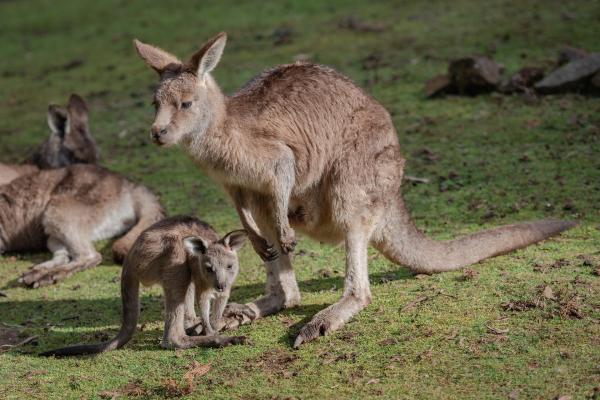
By Taylah Eastwell
A much-loved mob of kangaroos landlocked at the future site of Kinley Estate have finally been relocated after a year-long community fight.
The developer of the estate, Intrapac Property’s CEO Max Shifman recently confirmed 60 kangaroos had been translocated to an undisclosed location, ending over 12-months of anguish and uncertainty by concerned community members.
The kangaroos were originally planned to be culled to make way for the all-new suburb until outcry from the community saw the killings halted and alternatives discussed.
“There is an impassioned community out there who didn’t want to see these kangaroos killed”, Mr Shifman said.
“We always wanted to avoid harming these animals but the current regulatory environment does not provide any other viable choice. Following the outcry we’ve spent the last 12 months working collaboratively and constructively with government to design a translocation trial to save the Kinley kangaroos,” he said.
A dedicated group of professionals were quick to form a group to advocate for saving the roos last July, known as Save the Kinley Kangas, having offered their expertise free of charge to the developer.
Member of Save the Kinley Kangas, Alyssa Wormald said the group had a “team of preeminent macropod experts who did a huge amount of pro bono work with the developer to make a proposal” for the safe relocation of the kangaroos.
“As far as we were aware it was progressing well. The proposal was in its final stage of approval when the developer just cut contact with us. We never found out what happened to it, they never provided an explanation or had any further contact with our experts who had been working with them collaboratively up until that point,” Ms Wormald said.
Mr Shifman said Intrapac were “initially open to working with the Save the Kinley Kangas wildlife rescue group, however, Intrapac Property was advised by the authorities that Save the Kinley Kanga’s proposal would not be approved for a variety of reasons”.
“The withdrawal of the original relocation site in particular, unrealistic expectations about how the relocation could work, and their ongoing media and personal attacks meant that it was no longer fruitful to continue working with that group,” Mr Shifman said.
Mr Shifman instead enlisted the help of a specialist team who have devised a pilot study to test the science underpinning currently policy around translocating kangaroos. According to Mr Shifman’s statement, the study includes veterinary health testing at the time of relocation and ongoing monitoring over a two year period to understand survival rate and movement patterns.
“We would like to reiterate that relocation of the Kinley kangaroos required approval from the relevant regulators and therefore, there was no other option but to move forward with an alternative proposal that would see the roos moved. We have successfully achieved something that no one else in Victoria has achieved,” he said.
The push for a study has worried Save the Kinley Kangas, the group now concerned that if the translocation is not done safely and humanely it may have devastating results for future translocation pleas.
“We know it is safe and humane when done by experts. We are concerned that if it is considered not successful the outcome will be one that doesn’t facilitate further relocations,” Ms Wormald said.
In response, Mr Shifman said “Intrapac Property assembled a team of Australia’s preeminent macropod researchers, veterinarians and wildlife experts. Alyssa Wormald and STKK’s statements are based simply on us not using the groups that they put forward.”
Regardless, Ms Wormald said the group was “thrilled that the community raised their voice and were able to stop a killing”.
“That is a huge success for which the community should be proud,” she said.
Ms Wormald said a few kangaroos had still been sighted at the development and she hopes they are reunited with the rest of the mob.
Residents are also concerned about the fate of a deer, affectionately known as Sam, who had lived with the roos for quite some time.
Mr Shifman said he was “happy to be able to invest in this pilot study to ensure that our development activities meet the gold standard for wildlife welfare, and hopefully create a platform for future successful relocations”.
“We take our environmental responsibilities as developers seriously,” he said.






